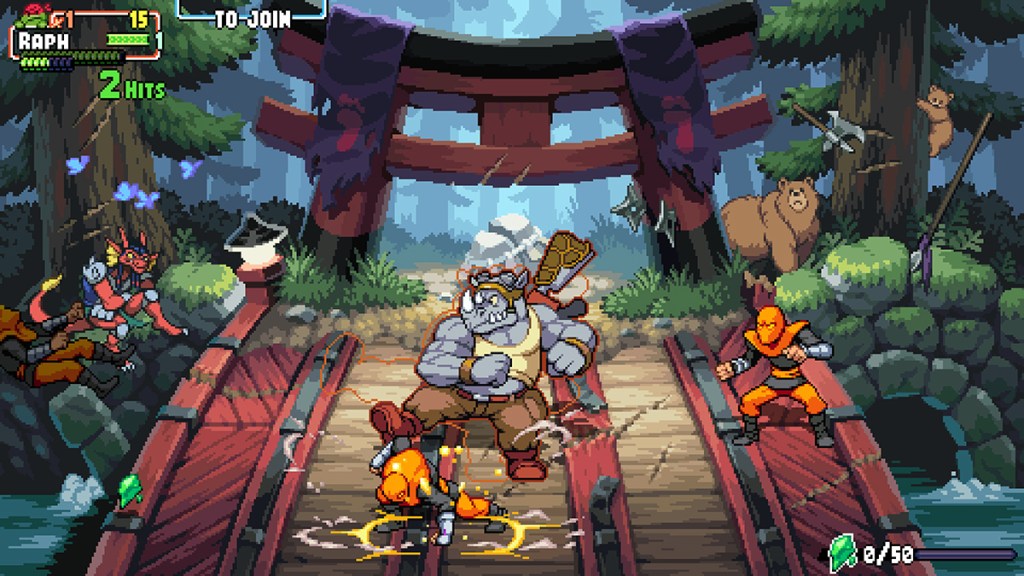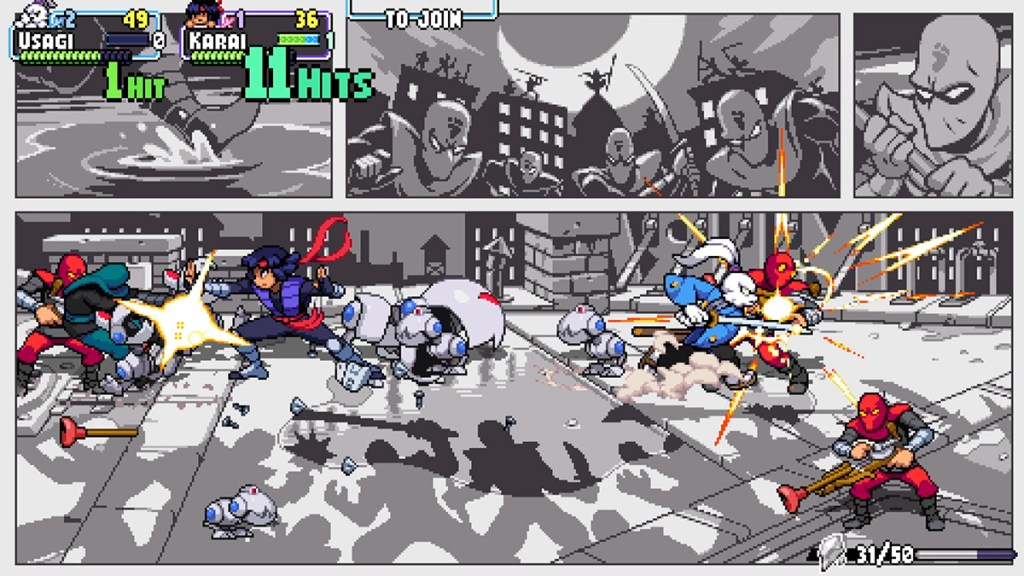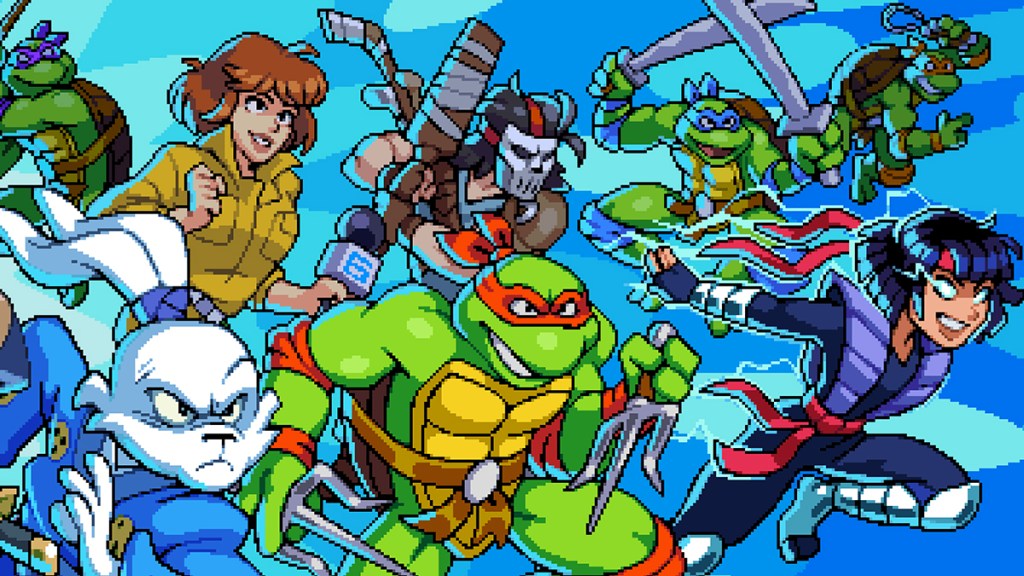Dumping more money into Teenage Mutant Ninja Turtles: Turtles in Time in the arcades gave players another chance to take down Shredder. Dumping more money into Teenage Mutant Ninja Turtles: Shredder’s Revenge gives players a new expansion called Dimension Shellshock. It’s a dramatically more appealing deal, and while it’s an excellent reminder of Shredder’s Revenge’s stunning art and soundtrack, it’s also a little shallow.
Dimension Shellshock is underwhelming because it’s not that deep of a roguelite. Being dropped into a bunch of combat challenges isn’t much different from the combat-heavy campaign, but the bigger issue is that it lacks the hooks that a decent roguelite needs.

Characters can be leveled up for better stats and each has a few palette swaps that unlock after certain conditions are met. Higher stats make the runs progressively easier, but the tame skins aren’t that great of an incentive, especially because most can take multiple hours to unlock for each character. And since the skins are underwhelming, the loop mostly becomes about playing more to get better at playing more. There aren’t even achievements or trophies to chase.
Even though this mode points out its control-related inconsistencies — it still needs an aerial evade and recovery move, as well as a dodge that shifts players vertically — there is an intrinsic reward to playing Shredder’s Revenge and hacking away at the Foot Clan’s finest. But the stunted nature of its underwhelming extrinsic rewards is what makes it lose value as a roguelite and wave-based survival mode. Levels cycle in in different orders and the annoyingly vague perks change from wave to wave, but the runs themselves don’t evolve much. Brawlers are prone to feeling repetitive and better roguelite mechanics would keep that repetition from sinking in.

It’s ironic that it doesn’t dangle better carrots in front of players since the rabbit samurai Miyamoto Usagi is one of the new playable characters alongside the Foot Clan’s own ninja Karai. Karai is quick with her elementally charged attacks and plays mostly like the other characters, albeit with wildly different effects that give her her own identity. Usagi, on the other hand, is much more unique. His ability to double jump and continue his combos in the air gives him more utility and demonstrates that everyone in the cast should have had their own one-of-a-kind traits. Both can also be played in the main campaign, which is a fitting bonus.
The levels in Dimension Shellshock aren’t pulled from the campaign at all, but have the same stellar art design that made the base experience such a visual treat. The apocalyptic, Japan-centric, and futuristic stages are brimming with color and detail and have their own brand-new enemies, yet are outclassed by the 8-bit and comic stages. These inventive worlds stick out from the others and efficiently use their simple color palettes to create backgrounds with more striking contrasts. Shredder’s Revenge leverages its history well and doesn’t use nostalgia as a crutch, and these backgrounds are a fitting distillation of that since they are inspired by the past, but glorious in their own right.
TMNT: Shredder’s Revenge: Dimension Shellshock DLC Review: The final verdict
Dimension Shellshock has most of the same strengths as the base game, but a few more shortcomings, as well. The new mode’s roguelite elements lack variety, and its loops aren’t deep or rewarding enough to warrant multiple runs. The gorgeous pixel art and expressive animation don’t get old, but its survival mode is almost as two-dimensional as its sprites.
-
Inventive new backgrounds with beautiful art and obscure references.
-
The details of each perk aren't explained well until after they're picked
-
Weak unlocks don't justify multiple runs
Disclaimer: This TMNT: Shredder’s Revenge: Dimension Shellshock DLC review is based on a PS5 copy provided by the publisher. Played on version 1.008.000.




